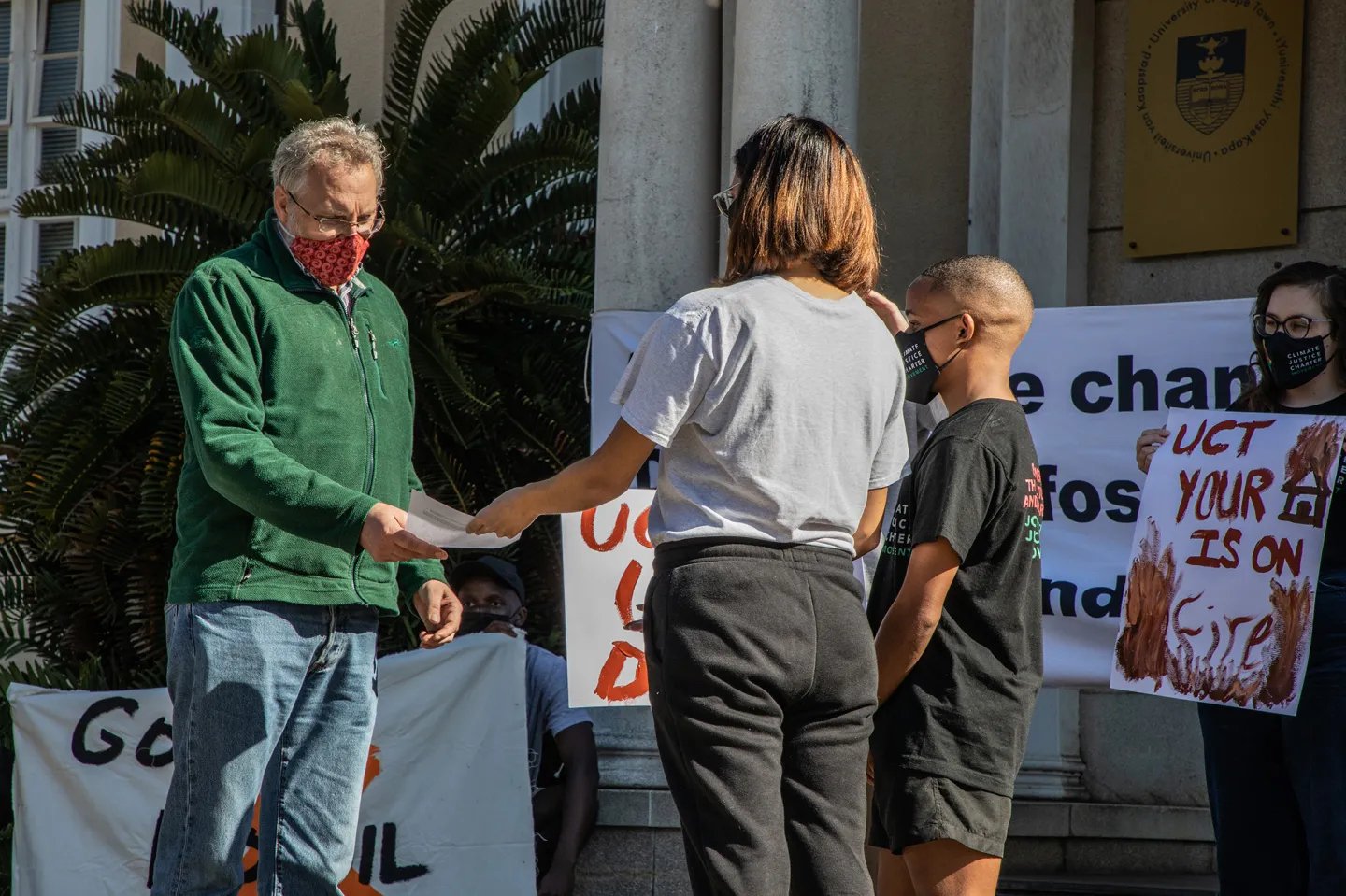UCT's responsible investment panel (UPRI) recommends divestment
Pic: UPRI chair Professor Tom Moultrie accepts a memorandum – calling for the university to divest – from UCT Green Campus Initiative students and Fossil Free UCT supporters, in May 2021
After eight long years of trying to persuade UCT to stop investments in fossil fuels, the University of Cape Town’s Panel on Responsible Investment (UPRI) has now published its recommendation on divestment – which is, that UCT should divest from all fossil fuel investments by 2030!
The University of Cape Town’s Panel on Responsible Investment (UPRI) has now published its recommendation on fossil fuel divestment – which is, that the UCT Foundation and Council should indeed commit themselves to fully divesting their assets from fossil fuel investments by 31 December 2029 or earlier if possible.
The next step is whether Council accepts these recommendations in either October or December, but we think it is most likely.
It’s significant that UCT has NOT opted for a shareholder engagement approach on fossil fuels. Shareholder engagement has its place, no mistake, but does not send the very tough signal to fossil fuel companies that is now required. So this may be a milestone for so-called responsible investment in South Africa – a point at which rhetoric becomes substance.
What now?
This is not a final victory. We still need to see the final approval of this decision by Council. That decision should take the form of very firm commitments to:
Divestment as per the UPRI’s recommendations.
Public announcements of the decision.
Divestment as fast as possible, with 2029 the very outside target date for completing the process.
Working together with other universities as far as possible. The VC and chair of Council should write to their counterparts at all other SA universities formally inviting collaboration on ethical low-carbon investment.
Transparency over current investments.
Annual updates on progress towards divestment.
It’s unlikely that any SA institution can succeed alone on the divestment journey. A commitment to collaboration is vital. There are four other SA institutions that have made admirable initial divestment commitments, but that have made no subsequent disclosures of what if any progress they have managed to make towards actually moving capital: Cities of Cape Town and Durban, the Anglican Church and Tutu Foundation – we would very much like to know what you have done to make your commitments real.
But for now, we remain delighted by the firm proposal from UCT’s UPRI, and very much hope it will be implemented with vision and conviction.
This is a significant milestone for the campaign for university divestment, for the many, many students (see below), academics and others who have worked for this, and we greatly appreciate your support over the years!
“So happy to see this so many years after we started Fossil Free UCT! The times are changing. I remember being on a panel representing students advocating for this, against opposing professors and economists and feeling like I was fighting a losing battle… David Le Page and the team who carried this through are to be commended!”
– Kirtanya Lutchminarayan, environmentalist and former UCT Green Campus Initiative member

